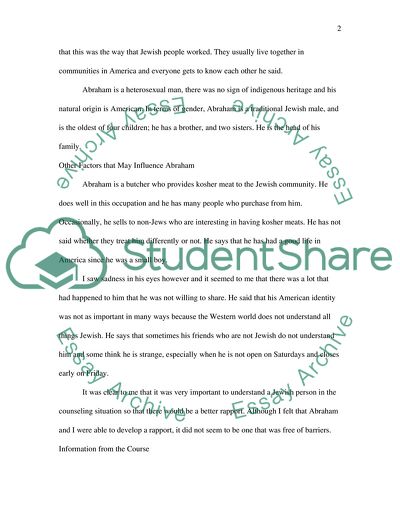Cite this document
(Interview With Jewish Male Essay Example | Topics and Well Written Essays - 2000 words, n.d.)
Interview With Jewish Male Essay Example | Topics and Well Written Essays - 2000 words. https://studentshare.org/sociology/1732988-multic-final-project
Interview With Jewish Male Essay Example | Topics and Well Written Essays - 2000 words. https://studentshare.org/sociology/1732988-multic-final-project
(Interview With Jewish Male Essay Example | Topics and Well Written Essays - 2000 Words)
Interview With Jewish Male Essay Example | Topics and Well Written Essays - 2000 Words. https://studentshare.org/sociology/1732988-multic-final-project.
Interview With Jewish Male Essay Example | Topics and Well Written Essays - 2000 Words. https://studentshare.org/sociology/1732988-multic-final-project.
“Interview With Jewish Male Essay Example | Topics and Well Written Essays - 2000 Words”. https://studentshare.org/sociology/1732988-multic-final-project.


